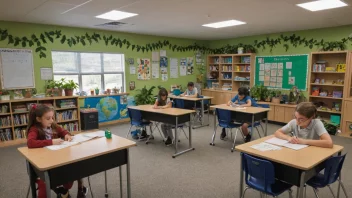What is social mobility?
Social mobility refers to the ability of individuals or families to move up or down the social ladder. It encompasses changes in income, education, and occupation, allowing people to achieve a different social status than that of their parents. Understanding social mobility is crucial for assessing equality and opportunity in society.
How does education impact social mobility?
Education plays a pivotal role in facilitating social mobility. Higher levels of education are often associated with better job prospects, increased income, and enhanced social status. Individuals with advanced degrees tend to have access to more opportunities, which can lead to upward mobility.
What are the barriers to education that affect social mobility?
Several barriers can hinder access to education, particularly for disadvantaged groups. These include:
- Economic factors: Low-income families may struggle to afford tuition, books, and other educational expenses.
- Geographic location: Rural areas often have fewer educational institutions and resources compared to urban settings.
- Discrimination: Racial, ethnic, or gender discrimination can limit access to quality education.
- Lack of support: Students without strong parental or community support may find it challenging to pursue higher education.
Are there differences in social mobility based on education level?
Yes, there are significant differences in social mobility based on education level. Research indicates that individuals with a bachelor's degree or higher experience greater mobility compared to those with only a high school diploma. This disparity highlights the importance of higher education in breaking the cycle of poverty.
How do policies and programs influence education and social mobility?
Government policies and educational programs can significantly impact social mobility. Initiatives such as:
- Scholarships and grants: Financial aid can help low-income students access higher education.
- Early childhood education: Programs targeting early education can set a strong foundation for future academic success.
- Workforce development: Training programs can equip individuals with skills needed for high-demand jobs.
These policies can help level the playing field and enhance opportunities for upward mobility.
What role does family background play in educational attainment and social mobility?
Family background is a significant determinant of educational attainment. Children from higher socioeconomic backgrounds often have access to better educational resources, including tutoring, extracurricular activities, and a supportive home environment. This advantage can lead to higher educational attainment and, consequently, greater social mobility.
How can communities support education to enhance social mobility?
Communities can play a vital role in promoting education and social mobility by:
- Creating mentorship programs: Connecting students with mentors can provide guidance and support.
- Investing in local schools: Community funding can improve educational facilities and resources.
- Encouraging parental involvement: Engaging parents in their children's education can enhance academic outcomes.
These efforts can help create an environment conducive to learning and growth.
What are some recent studies or findings related to education and social mobility?
Recent research has highlighted various aspects of the relationship between education and social mobility. For instance:
- A study by the National Bureau of Economic Research found that access to quality education significantly affects long-term income potential.
- Research from the Brookings Institution indicated that neighborhoods with high levels of educational attainment correlate with increased social mobility.
These findings underscore the importance of education in shaping life outcomes.
What can individuals do to improve their own social mobility through education?
Individuals can take several steps to enhance their social mobility through education, including:
- Pursuing higher education: Enrolling in college or vocational training can open doors to better job opportunities.
- Seeking out scholarships: Applying for financial aid can alleviate the burden of educational costs.
- Networking: Building connections in academic and professional circles can provide valuable opportunities.
Taking proactive steps can empower individuals to improve their social standing.
Conclusion
Education is a powerful tool for enhancing social mobility. By understanding the barriers and opportunities within the educational system, individuals and communities can work together to create a more equitable society. Through informed policies and community support, we can help ensure that education serves as a pathway to upward mobility for all.






